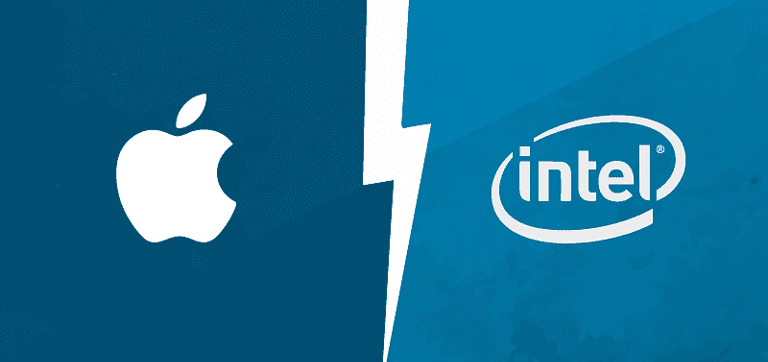For Bulk Orders email us at sales@enfotechindia.com OR call us at 9999109006
Tech Titans Clash: Intel vs. Apple - Who Will Reign Supreme?
Intel 13th gen processors and Apple M3 chip represent significant advancements in computing technology, offering impressive performance, efficiency, and features tailored to the needs of modern users.
VJ
3/11/20242 min read


Intel 13th Gen Processor: A Leap Forward in Computing Power
Intel's 13th generation processors represent a significant milestone in the evolution of computing power, offering enhanced performance, efficiency, and versatility to meet the demands of modern computing tasks. Built on cutting-edge technology and innovation, these processors push the boundaries of what's possible, delivering an exceptional user experience across a wide range of applications.
Performance
The Intel 13th gen processors boast impressive performance capabilities, leveraging advanced architectures and optimized core designs to deliver blazing-fast speeds and responsive computing experiences. With higher clock speeds, improved IPC (Instructions Per Clock), and enhanced multi-threading capabilities, these processors excel in handling demanding workloads, whether it's intensive gaming, content creation, or productivity tasks.
Efficiency
In addition to raw performance, Intel's 13th gen processors prioritize energy efficiency, striking a balance between power and battery life. Through innovative power management techniques and optimized manufacturing processes, these processors deliver sustained performance while minimizing power consumption, ensuring longer battery life and extended usage between charges for laptops and mobile devices.
Features
Intel's 13th gen processors come equipped with a host of advanced features and technologies designed to enhance user experience and productivity. From integrated AI accelerators and enhanced security features to support for high-speed connectivity standards like Wi-Fi 6E and Thunderbolt 4, these processors offer a comprehensive suite of capabilities to meet the diverse needs of today's users.
Comparison with Apple M3 Chip
While both the Intel 13th gen processors and Apple M3 chip represent leading-edge technologies in their respective domains, there are notable differences to consider:
1. Architecture: The Intel 13th gen processors are based on x86 architecture, whereas the Apple M3 chip utilizes ARM-based architecture. Each architecture has its strengths and weaknesses, and the choice depends on factors such as performance requirements, software compatibility, and ecosystem preferences.
2. Performance: Both processors offer impressive performance, but the specific metrics may vary depending on workload and optimization. The Intel 13th gen processors are known for their versatility and compatibility with a wide range of software applications, while the Apple M3 chip excels in power efficiency and integration with Apple's ecosystem.
3. Power Efficiency: The Apple M3 chip is renowned for its power efficiency, thanks to Apple's custom-designed architecture and optimization for mobile devices like MacBook Air. While Intel's 13th gen processors also prioritize energy efficiency, the power consumption may differ based on usage scenarios and system configurations.
4. Ecosystem Integration: The Apple M3 chip is tightly integrated with macOS and Apple's ecosystem, offering seamless interoperability with other Apple devices and services. In contrast, Intel's 13th gen processors power a diverse range of devices running various operating systems, providing greater flexibility and compatibility with third-party software and hardware.
In summary, both the Intel 13th gen processors and Apple M3 chip represent significant advancements in computing technology, offering impressive performance, efficiency, and features tailored to the needs of modern users. The choice between them depends on factors such as platform preferences, software requirements, and use-case scenarios, highlighting the diversity and innovation driving the computing industry forward. So be in touch of Enfotech for latest in technology.

